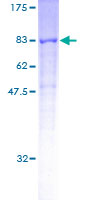Login
Registration enables users to use special features of this website, such as past
order histories, retained contact details for faster checkout, review submissions, and special promotions.
order histories, retained contact details for faster checkout, review submissions, and special promotions.
Forgot password?
Registration enables users to use special features of this website, such as past
order histories, retained contact details for faster checkout, review submissions, and special promotions.
order histories, retained contact details for faster checkout, review submissions, and special promotions.
Quick Order
Products
Antibodies
ELISA and Assay Kits
Research Areas
Infectious Disease
Resources
Purchasing
Reference Material
Contact Us
Locations
Orders Processing,
Shipping & Receiving,
Warehouse
2 Shaker Rd Suites
B001/B101
Shirley, MA 01464
Production Lab
Floor 6, Suite 620
20700 44th Avenue W
Lynnwood, WA 98036
Telephone Numbers
Tel: +1 (206) 374-1102
Fax: +1 (206) 577-4565
Contact Us
Additional Contact Details
Login
Registration enables users to use special features of this website, such as past
order histories, retained contact details for faster checkout, review submissions, and special promotions.
order histories, retained contact details for faster checkout, review submissions, and special promotions.
Forgot password?
Registration enables users to use special features of this website, such as past
order histories, retained contact details for faster checkout, review submissions, and special promotions.
order histories, retained contact details for faster checkout, review submissions, and special promotions.
Quick Order
| Catalog Number | Size | Price |
|---|---|---|
| LS-G30896-2 | 2 µg | $439 |

Human CORO2A Protein (Recombinant GST) (Full Length) - LS-G30896
Human CORO2A Protein (Recombinant GST) (Full Length) - LS-G30896
Available for shipment within the USA only
Description:
CORO2A Protein LS-G30896 is a Recombinant Human CORO2A produced in Wheat Germ Extract with GST tag(s). For Research Use Only
Available for USA Shipment Only
Toll Free North America
 206-374-1102
206-374-1102
For Research Use Only
Overview
Description:
CORO2A Protein LS-G30896 is a Recombinant Human CORO2A produced in Wheat Germ Extract with GST tag(s). For Research Use Only
Specifications
Type
Recombinant Protein
Target
CORO2A
Synonyms
CORO2A | Coronin-2A | Coronin-like protein B | CLIPINB | Coronin 2A | IR10 | WD repeat-containing protein 2 | WD protein IR10 | WD-repeat protein 2 | WDR2
Species
Human
Modifications
Unmodified
Conjugations
Unconjugated
Tag
GST
Predicted Molecular Weight
83.49 kDa
AA Sequence
MSWHPQYRSSKFRHVFGKPASKENCYDSVPITRSVHDNHFCAVNPHFIAVVTECAGGGAFLVIPLHQTGKLDPHYPKVCGHRGNVLDVKWNPFDDFEIASCSEDATIKIWSIPKQLLTRNLTAYRKELVGHARRVGLVEWHPTAANILFSAGYDYKVMIWNLDTKESVITSPMSTISCHQDVILSMSFNTNGSLLATTCKDRKIRVIDPRAGTVLQEASYKGHRASKVLFLGNLKKLMSTGTSRWNNRQVALWDQDNLSVPLMEEDLDGSSGVLFPFYDADTSMLYVVGKGDGNIRYYEVSADKPHLSYLTEYRSYNPQKGIGVMPKRGLDVSSCEIFRFYKLITTKSLIEPISMIVPRRSESYQEDIYPPTAGAQPSLTAQEWLSGMNRDPILVSLRPGSELLRPHPLPAERPIFNSMAPASPRLLNQTEKLAAEDGWRSSSLLEEKMPRWAAEHRLEEKKTWLTNGFDVFECPPPKTENELLQMFYRQQEEIRRLRELLTQREVQAKQLELEIKNLRMGSEQL
Expression System
Wheat Germ Extract
Source Species
Wheat
Purification
Glutathione Sepharose
Bio-Activity
Not Tested
Endotoxin
Not Tested
Presentation
50 mM Tris-HCl, pH 8.0, 10 mM reduced glutathione
Storage
Store at -80°C. Aliquot to avoid freeze-thaw cycles. Best used within 3 months.
Restrictions
For research use only. Intended for use by laboratory professionals.
Available for shipment within the USA only
About CORO2A
Publications (0)
Customer Reviews (0)
Images
Sodium Dodecyl Sulfate - Polyacrylamide Gel Electrophoresis

12.5% SDS-PAGE of human CORO2A stained with Coomassie Blue
Sodium Dodecyl Sulfate - Polyacrylamide Gel Electrophoresis

12.5% SDS-PAGE of human CORO2A stained with Coomassie Blue
Sodium Dodecyl Sulfate - Polyacrylamide Gel Electrophoresis

12.5% SDS-PAGE of human CORO2A stained with Coomassie Blue
Sodium Dodecyl Sulfate - Polyacrylamide Gel Electrophoresis

12.5% SDS-PAGE of human CORO2A stained with Coomassie Blue
Popular CORO2A Proteins
Source:
Human
Tag:
Myc-DDK (Flag)
Source:
Human
Tag:
Myc-DDK (Flag)
Source:
Human
Tag:
Myc-DDK (Flag)
Source:
Human
Tag:
Myc-DDK (Flag)
Request SDS/MSDS
To request an SDS/MSDS form for this product, please contact our Technical Support department at:
Technical.Support@LSBio.com
Requested From: United States
Date Requested: 9/20/2024
Date Requested: 9/20/2024










